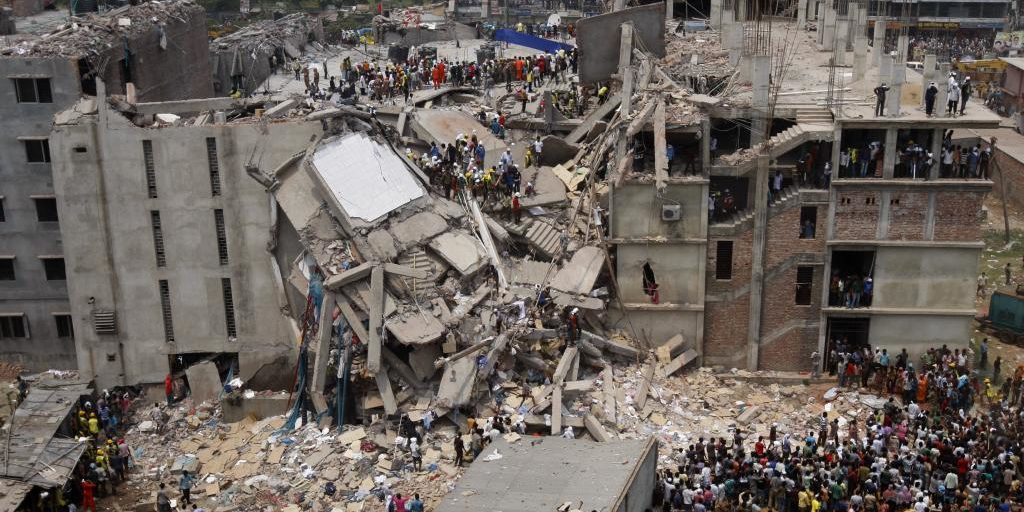“Class war” is not just a rhetorical trope or a figure of speech. It is a real war waged with often lethal effect on working people around the world, and it has broken out again (or perhaps I should say “still”) in Bangladesh. Workers from the country’s huge and economy- dominating garment industry, second only to China’s in size, have been in the streets since October in the biggest demonstrations in a decade, demanding better wages, an end to government harassment of journalists and human rights activists, freedom of expression and fair elections. The government response has ranged from lethal violence, with deaths already reported among the demonstrators, to legal assaults, with suits being laid against over 23,000 workers by mid-November and over a hundred arrests. This comes as employers are offering insultingly low raises that fall far behind inflation and counting on the courts and riot police to back up their minimal offers. Class war, as is so often the case, proceeds on several fronts at once.
Meanwhile, the UN and an international coalition representing over 2,500 brands, retailers, and suppliers and working with more than 2,900 factories in Bangladesh have expressed grave concerns about the situation.
Transparency International Bangladesh executive Dr. Iftekharuzzaman told Dhaka’s Daily Observer on November 23 “Various reliable studies and analyses indicate that the newly proposed minimum wage for garment workers falls significantly below living requirements.”
The stakes are high. According to the Associated Press, “Bangladesh is the second largest garment-producing country in the world after China with its nearly 3,500 factories. Some four million workers are employed in them, most of them women, according to the Bangladesh Garment Manufacturers and Exporters Association, or BGMEA. The workers get 8,300 takas, or $75, as a monthly minimum wage and they often need to work overtime to make ends meet, labor unions and workers say.” The workers in Bangladesh’s garment industry generate 85 per cent of the country’s $55 billion in annual exports.
IndustriALL affiliates in Bangladesh are calling upon the government to release arrested workers and to provide compensation for deaths and injuries sustained by demonstrators. IndustriALL is a global labour group representing over 50 million workers in 140 countries.
We are all complicit in the horrible situation facing Bangladeshi workers, albeit unwillingly. Although almost everyone reading this column will have clothes made in Bangladesh in their closets, the human grief and losses that are woven into every garment are far too easy to ignore until the next crisis erupts. Some readers will remember the horrific factory collapse at the Rana Plaza a decade ago, a nightmarish event that killed over a thousand workers when an unsafely constructed factory building collapsed.
As the International Labour Organization (ILO) notes, this disaster focused global attention and some factory safety reforms were won over the decade. But the same employer class that built the lethally jury-rigged factories are still substantially in charge of the state and the economy in Bangladesh, as the draconian response to recent worker demonstrations shows all too vividly.
Readers who would like to stand in solidarity with Bangladeshi garment workers can start by signing a petition here, by circulating the petition to your own networks and by urging union locals, church groups and other civil society bodies to publicly support these workers as well. None of us can be neutral in the war against workers. We need to decide, in the words of the old union song, “Which side are you on,” and once we decide, we need to act.



